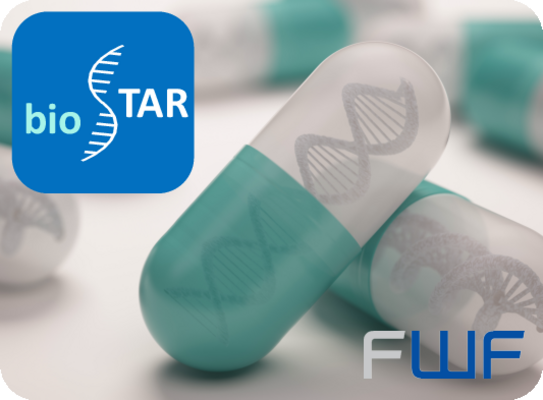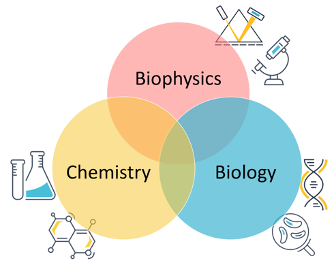
Research Focus
Nucleic acids are versatile messenger molecules. The most prominent way of encoding information is their base sequence, that is translated by the ribosome machinery to produce proteins. Additionally, a great variety of nucleic acid modifications at the bases or internucleotide linkages as well as the nucleic acid structure and conformation can encode different information that is read out by a large set of nucleic acid sensors and processing enzymes. Given these key functions and the enormous regulatory potential, nucleic acids have become an important focus of diagnostics and drug design.
Main Objectives
- We are part of the Young Investigator Research Group bioSTAR, a collaborative project between TU Wien and Medical University of Vienna. Within this highly interdisciplinary project we aim for the design and development of programmable chemical probes capable of selectively binding to a specific RNA sequence followed by a biorthogonal reaction. This approach will improve the binding to target RNA and furthermore enable the regulation of gene expression, which – for example – can be used to design new antibiotics based on the genetic code of bacteria. The biorthogonal reaction can be designed in such a way that an active molecule is released right upon the binding to the target sequence. We aim to use this cleavage mechanism to achieve selective release of highly potent drugs inside cells.
- In a second collaborative project with TU Wien and Massachusetts General Hospital we aim for new strategies for monitoring labeled biomolecules across physiologic space and time. We are working on a set of tools that can convert compact, durable chemical tags into oligonucleotide probes on demand, enabling ultrasensitive molecular detection and seamless integration with sequencing/amplification-based biotechnologies.

Content of Research
Our collaborative projects allow to join forces and combine chemical, biophysical and biological expertise from the different teams. Within our lab, we contribute to the assembly and functional characterization of our novel programmable oligonucleotide probes. Furthermore, we work on their evaluation in biochemical assays and different biological systems including mammalian cell lines as well as bacterial cells.
